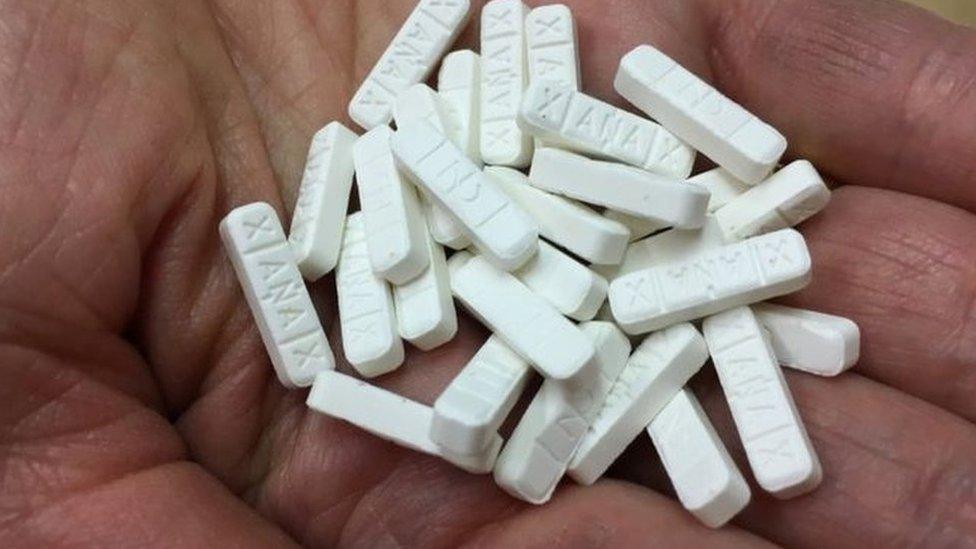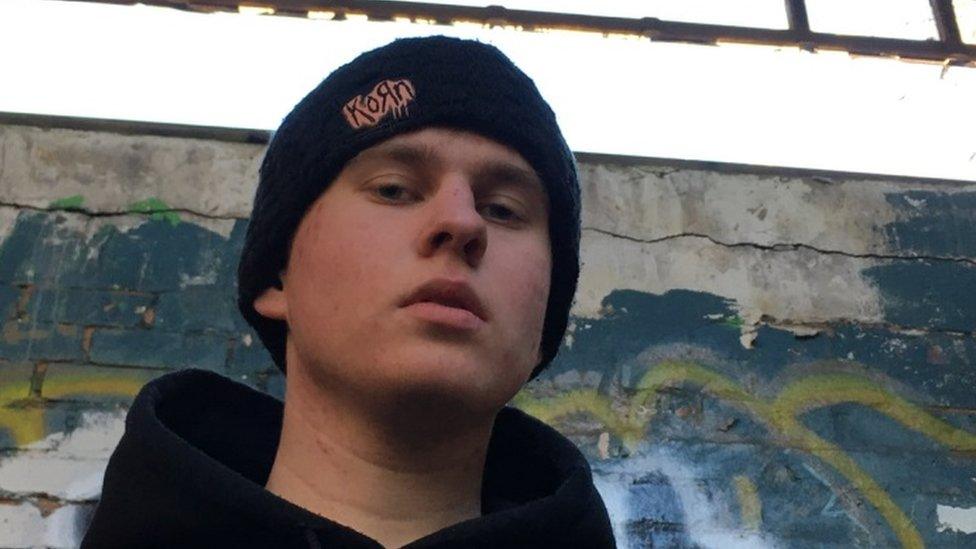Xanax: Treatment for addiction rises sharply in children
- Published

Xanax slows down the functions of the brain, but serious side-effects can occur
The number of children being treated for addiction to tranquilisers has doubled in a year, to more than 300, according to Public Health England.
The drug Xanax, and copies of it, accounted for the sharpest rise - from eight children receiving treatment in 2016-17 to 53 in 2017-18.
Ambulance services around the country have also reported a growing problem.
In 2017-18, more than 15,500 children had help for substance misuse, 88% for cannabis.
The total number receiving treatment was 5% down on the previous year,
What is Xanax?
Xanax is the brand name for the drug alprazolam, a benzodiazepine prescribed for anxiety or panic attacks. But many of the pills taken by children are copies bought online, with no indication of their strength or whether they have been adulterated.
What are the effects of benzodiazepines?
UK Addiction Treatment group psychiatrist Dr Durrani says: "Benzos work by literally slowing down the functions of the brain, acting as a leveller in times of high stress, over-excitement or anxiety.
"Serious side-effects can occur, including slurring words or even total blackouts.
"We're seeing more and more people admitting themselves after becoming addicted to benzos.
"In most cases, their misuse stemmed from using the drug recreationally at parties and mixing it with alcohol, which proves a toxic combination."
What do the ambulance services say?
The North East Ambulance Service, which provided the most comprehensive details to a BBC Freedom of Information request sent to six ambulance services, said that in 2017 it had attended 240 callouts for Xanax abuse by children, two of which had been for 11-year-olds.
What about Public Health England?
Drugs, alcohol and tobacco director Rosanna O'Connor says: "Despite fewer under-18s asking for help with drug and alcohol problems, it remains a significant issue and the latest data, external shows an increasing number of young people needing treatment for benzodiazepines.
"However, there is limited evidence and data for these drugs, so we do not have a clear picture of changes in use.
"Benzodiazepines are risky when taken without medical supervision and mixing them with alcohol or other drugs increases the risk of harm, particularly when mixed with other sedatives."
What about other addictions?
The PHE report also says:
the number of children receiving treatment for ecstasy addiction rose by 18% over the same period
46% of the 15,583 children being treated for substance misuse are being helped with alcohol issues
- Published6 March 2018
